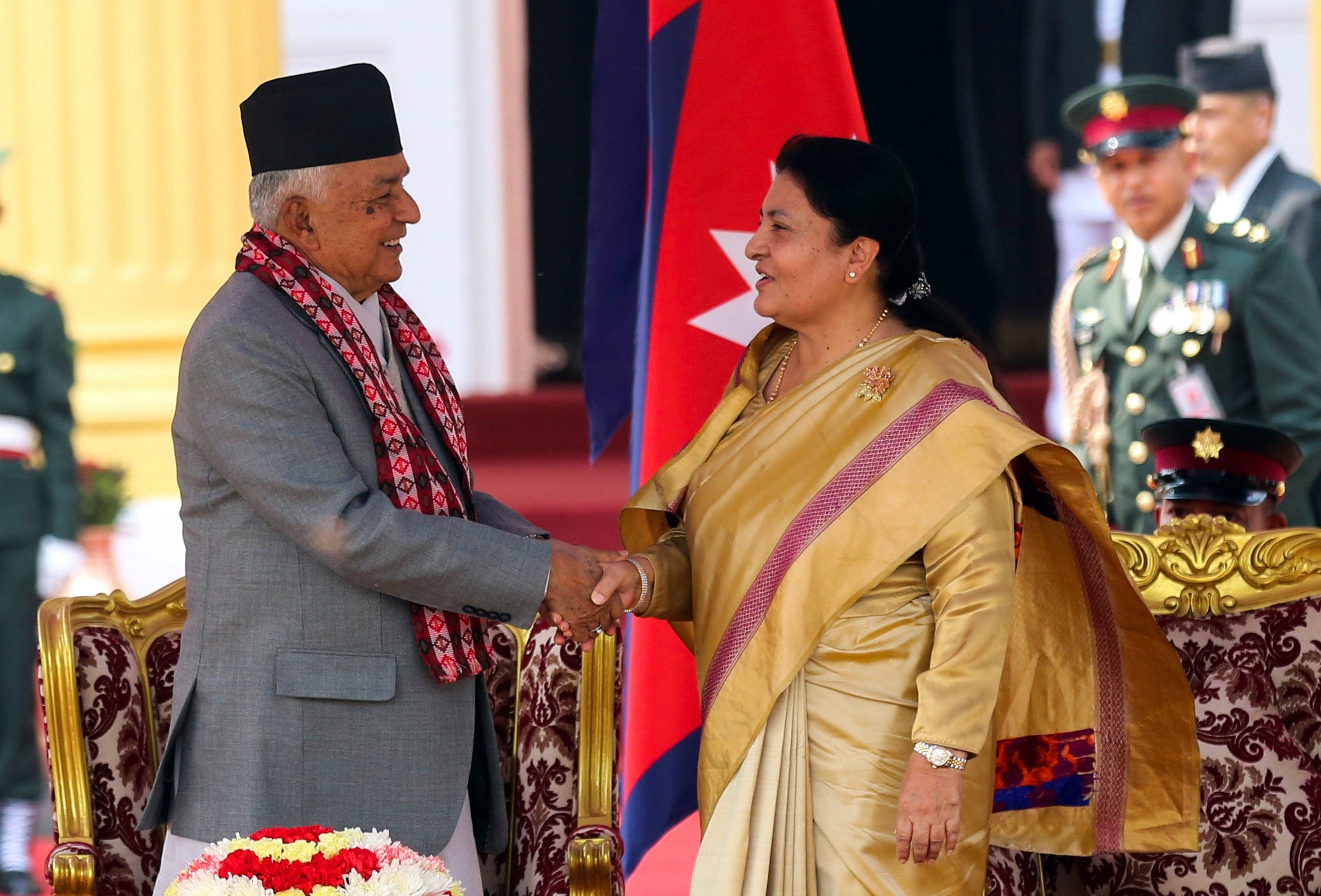Nepal's newly elected president takes oath of office
Nepal's newly elected president has taken took the oath of office in Kathmandu

Your support helps us to tell the story
From reproductive rights to climate change to Big Tech, The Independent is on the ground when the story is developing. Whether it's investigating the financials of Elon Musk's pro-Trump PAC or producing our latest documentary, 'The A Word', which shines a light on the American women fighting for reproductive rights, we know how important it is to parse out the facts from the messaging.
At such a critical moment in US history, we need reporters on the ground. Your donation allows us to keep sending journalists to speak to both sides of the story.
The Independent is trusted by Americans across the entire political spectrum. And unlike many other quality news outlets, we choose not to lock Americans out of our reporting and analysis with paywalls. We believe quality journalism should be available to everyone, paid for by those who can afford it.
Your support makes all the difference.Nepal’s newly elected president — the third since the Himalayan nation abolished its centuries-old monarchy in 2008 and became a republic — took the oath of office Monday in Kathmandu.
Ram Chandra Poudel was elected Thursday by members of the Federal Parliament and provincial assemblies. Top officials, diplomats and Parliament members lined up to congratulate the new president at the ceremony where the military band played national songs and gave him a salute.
Outgoing President Bidhya Devi Bhandari, having completed the maximum completed two terms in office, passed the position on immediately after the swearing-in ceremony.
The president is largely a figurehead with little political power. But the election triggered a feud among partners in the governing alliance headed by Prime Minister Pushpa Kamal Dahal, who took office in December after a hung parliament left a fragile coalition government.
Dahal backed Poudel, who is also now the supreme commander of the Nepalese army, angering his main coalition partner, the Communist Party of Nepal (Unified Marxist Leninist), which backed Subash Chandra Nembang, its own candidate.
The party has since pulled out of the coalition, threatening Dahal’s control.
Dahal has since lost the support of three key political parties that were part of his initial coalition government, and must seek a vote of confidence in parliament later in March to continue in power.
There was no clear explanation of why Dahal decided to back the opposition candidate and endanger his alliance, but struggles for power among the main political parties are common. The country has had eight different governments in the past 10 years.